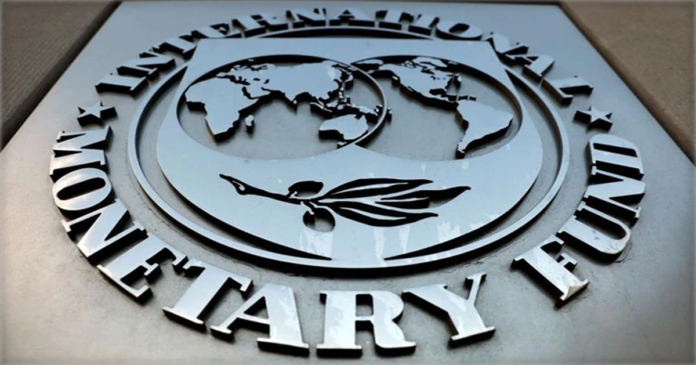Pakistan unhappy IMF: The administration has been putting on a brave face in its battle to convince the IMF to release crucial funding, but background conversations with officials reveal the administration is quite nervous beneath its confident exterior. The administration is finding it increasingly difficult to convince the Fund to release a loan installment.
Before reaching a staff-level agreement (SLA) on the desperately needed economic rescue, the International Monetary Fund (IMF) revised its interpretations of at least four earlier measures.
According to sources, the authorities are very irate about the most recent circumstance, which they have labeled as “maltreatment.”
A frustrated senior official remarked, “We are members of the IMF, not beggars or else our membership be discarded.”
Another official even compared the current state of affairs to that in 1998, when default appeared to be imminent and Pakistan’s economic problems had gotten worse as a result of its nuclear tests.
The IMF, according to officials, wanted to openly promote the poor but had insisted on several policies that would ultimately harm the low-income groups.
Despite this setback, the authorities hope — at least formally — that the SLA will end next week and that friendly nations will materialize
Pakistan secures funds from China, Saudi Arabia, and UAE for IMF loan program
According to the sources, on top of the $700 million that has already been received, the authorities have obtained $1.3 billion inflows from Chinese banks in three tranches. Money would be paid out in two equal installments of $500 million each, separated by a few days. Moreover, more than $3 billion would be provided by Saudi Arabia and the United Arab Emirates.
The four unfinished agenda items for the IMF loan program are an early increase in the central bank’s interest rate to reflect general inflation, an adjustment to the exchange rate to account for outflow to the war-torn and sanctioned Afghanistan, written guarantees for the lack of external financing from friendly nations, and the continuation of the Rs3.39 per unit financing cost surcharge on electricity consumers for future years through the finance bill, rather than for the past four months. financial support, some of which took longer than expected due to signals from the Fund.
They do, however, acknowledge that Pakistan’s diplomatic efforts were lacking, and that Pakistan also suffered from a credibility and trust deficit as a result of its prior policy reversals, which led some governments to support Pakistan’s “meltdown.”
According to reports, Pakistan projected $5 billion for the current fiscal year, but the IMF calculated an all-inclusive finance gap of roughly $7 billion. The State Bank of Pakistan’s foreign exchange holdings, which are currently just over $3.1 billion, is expected to surpass $10 billion by the end of June, according to one official.
The argument is that such a surcharge would assist close the financing deficit in the electricity sector in the future and how this could be done for future years in front of the legislature and the judiciary, but one official deemed this last stipulation to be “unreasonable.”
Criticism of Government-SBP Deadline for Exporters.
The government-SBP deadline for exporters to bring their revenues promptly or risk conversion at previous currency rates has also drawn criticism. After publicly stating that it will adhere to the original schedule planned for March 16, the State Bank of Pakistan was forced to move the meeting of its monetary policy committee to March 2. The ad to that which also led to This is odd because there had to be a gap between the exchange rate set by the market and the one offered on the black market, where residents of the sanctioned country on the other side would in any event give a greater rate to meet their needs.
“This is an illegal conduct, and it ought to be dealt with as such. Even market corrections are met with opposition, according to a different source.
Officials claim that everything was settled before the IMF delegation left Pakistan on the evening of February 9; in fact, the IMF was supposed to report “comprehensive dialogue and positive outcome of the talks” in its final statement, but this was watered down during the approval process abroad, where some powerful circles were alleged “more political than politicians.”
An insider stated that the coercive situation was similar to that of 1998 when the West sought “Pakistan’s denuclearization” and moved covertly to punish the country for nuclear testing. The official added that this time, certain nations had Pakistan’s missile program in mind.
IMF’s Demands for Support, Taxes on Poor and Wealthy, and Pakistan’s Compliance with Revised MEFP
According to the sources, the IMF reportedly desired support for the poor and taxes on the wealthy but insisted on raising general sales taxes, which had an inflationary effect on the poor, while opposing taxes on high earners like banks through foreign currency transactions. The flood levy on high-end groups was also criticised on the grounds that these weren’t quality controls.
According to sources, Pakistan received the draught Memorandum of Economic and Fiscal Policies (MEFP) in February and it has since undergone changes based on agreed-upon steps, which Pakistan has already complied with by raising gas and electricity prices and swiftly passing a Rs170 billion mini-budget.
The IMF’s executive board meeting is always scheduled for the completion of the earlier actions, but this time, they had been connected to the staff-level agreement. Official: “This is also unique.”

